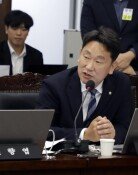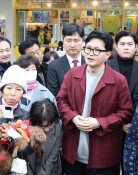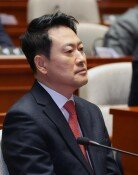Strong Response from Cheong Wa Dae
Strong Response from Cheong Wa Dae
Posted March. 16, 2005 00:13,
A shift in the Korean governments attitude toward Japan is perhaps the result of its conclusion that the subtle diplomacy that it has pursued since the 1965 normalization of relations with Japan will not bring the two nations closer to any solution to pending issues of Dokdo and history distortion.
Cheong Wa Dae, in particular, is known to have critical viewpoints about Japans actions and attitudes. A public statement about the principles of diplomacy with Japan, which is scheduled to go public on March 17, is known to strongly reflect such intentions of the presidential office.
Until now, the government has wrestled with the gap between public sentiment and international diplomacy. People hope for strong response, but in reality, this has not always been possible.
The Ministry of Foreign Affairs and Trade, mindful of several issues such as North Koreas nuclear issue and the Free Trade Agreement (FTA), both requiring cooperation with Japan, has long been worried about a feud. Maintaining a good relationship with Japan has been both important and, at times, difficult.
Due to special circumstances and the history between Japan and Korea, emotional responses sometimes emerge before rational judgment. Under these circumstances, being moderate may seem like a lukewarm response, which makes it difficult for the Korean government to remain neutral. This is why Ban Ki-moon, minister of Foreign Affairs and Trade, has repeatedly said that the he will not negotiate about the Dokdo issue.
The Korean government is expected to take practical and decisive steps to clarify the sovereignty of the islets. It plans to lift restrictions on tourists visiting Dokdo, which might encourage public trips to the islets, making people from all around the world recognize the islets as the sovereignty of Korea. The population of Dokdo will be increased from the current 3. The government will also consider reducing events related to the Korea-Japan friendship year.
Politicians are likely to pursue the passage of a special law on Dokdo development that includes plans to develop natural resources near the islets. The bill is now pending in the standing committee of the National Assembly.
On the other hand, some are concerned that strong responses might backfire and only help Japans aims. Every counter-response could end up emphasizing that Dokdo is a disputed area, critics have pointed out. This may suggest why the foreign ministry opposed the summoning of the Japanese Ambassador to Korea.
Jong-Koo Yoon jkmas@donga.com







